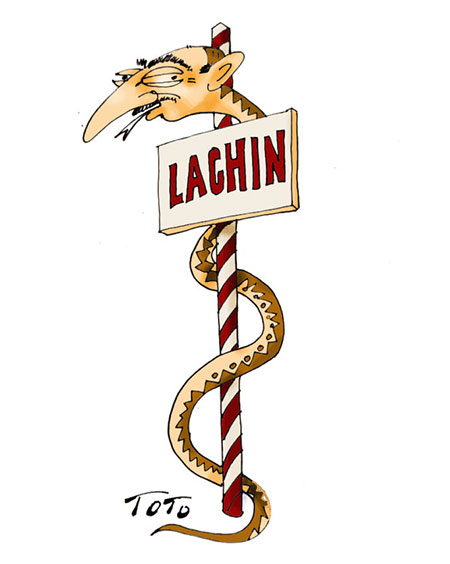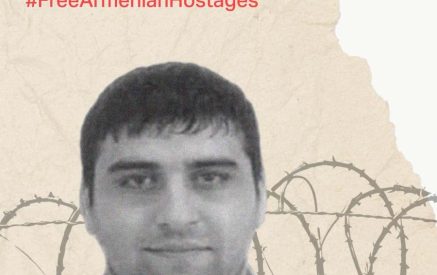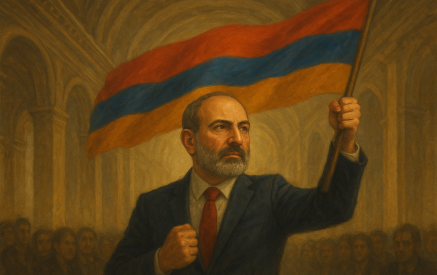by Edmond Y. Azadian
The world did not learn its lesson after the Nuremberg Trials exposed in detail how ethnic cleansing could happen. Genocide has been perpetrated many times since then, and now, the Armenians might once again be targeted for one.
“Risk for ethnic cleansing facing Armenian Christians is being highlighted at the International Criminal Court (ICC) in the Hague this week,” we read in the December 5 issue of the Independent Catholic News.
Read also
The rise of the threat of genocide against the Armenians living in Karabakh is the outcome of overwhelming political forces active in the area, as well as the conflicting interests of regional and global powers. A simplistic view is that Russia is being bogged down in its war against Ukraine, and thus is failing to control its turf in the South Caucus. Yet, there is more to that interpretation; the antagonism between Iran and Israel is placing Washington in a dichotomy in its relations with the regional nations.
A case in point is Secretary of State Antony Blinken’s repeated calls to Azerbaijan’s dictator Ilham Aliyev, asking for restraint against Armenia, while on the other hand the State Department through its spokesman Ned Price offers assurances that the US will help Azerbaijan, should a conflict ignite between Tehran and Baku. Iran is the only country in the region that has steadfastly spoken out to defend Armenia’s borders.
President Aliyev is well aware of the complexity of the situation and has been shaping his policies accordingly. It is also obvious that Azerbaijan has been taking calculated steps based on input from domestic and international think tanks, of course, with some coaching from Ankara.
Armenian Premier Nikol Pashinyan has raised the alarm regarding the possibility of genocide against the people of Karabakh when he met in Bishkek, Kyrgyzstan, with Russian President Vladimir Putin, whose public answer could only be described as cynical. Indeed, his response was that trade between Armenia and Russia has skyrocketed during the current year, and he tried to put words in Pashinyan’s mouth, asking the rhetorical question “Don’t you agree we held a successful session of the CSTO [Collective Security Treaty Organization] recently in Yerevan?”
It is no secret that the said meeting turned into a fiasco when the group failed to take a stand against Azerbaijani aggression, consequently forcing Armenia to refuse to sign onto the resolutions of the meeting.
President Putin’s cynicism was revealed once again, when Pashinyan called him to complain about Azerbaijani closure of the Lachin corridor, which may lead to ethnic cleansing in Karabakh. The Kremlin’s public statement indicated merely that the two leaders had discussed “some border and economic issues.”
It is believed that Mr. Putin’s personal behavior — which is also reflected on his peacekeeping forces in Karabakh — changed dramatically after he signed a treaty with President Aliyev last February, two days before Russia invaded Ukraine, upgrading the status of Azerbaijan to “strategic ally.” Ever since, the Russian peacekeeping forces have been rendered toothless. In fact, those forces are there are the mercy of Mr. Aliyev, who, thus far, has refused to sign their mandate and has been reminding Russia that their presence will not be tolerated beyond 2025, after their five-year term expires.
On the other hand, Arayik Harutyunyan, president of Artsakh, who was visiting France, called for the United Nations to create an international mandate for the peacekeeping forces. That, of course, was not a realistic plea, because first, Baku will not accept such a mandate and second, Russia would refuse to place its forces under foreign control, because in that capacity, those forces cannot play the political role that Mr. Putin has in mind.
An instructive example is the case of European monitors, which was brokered by Brussels, when Pashinyan and Aliyev met there. Aliyev refused their presence on Azerbaijani soil and all they could do was visit the Armenian side.
Incidentally, Pashinyan repeated his desperate warning last week in Yerevan at the fourth Global Conference on Genocide, which was taking place there.
President Aliyev first touted a false equivalency between the Lachin corridor and the “Zangezur Corridor” which he wishes to create, by slicing a swathe of land in Armenia’s sovereign territory, arguing that Baku has allowed free access through Lachin for Armenians to reach Karabakh and that therefore Azerbaijan has to enjoy the same rights through Zangezur to reach its exclave of Nakhichevan. He even threatened to open that corridor by force. Both Turkish and Azerbaijani leaders have taken turns in repeating that threat. Just last week, it was the turn of Turkish Defense Minister Hulusi Akar, who “pointed to the importance of opening regional communications in the South Caucasus.” He added that if Armenia does not allow the creation of the corridor, it will experience “a brotherly first,” with the said brother being Turkey!
Recently, that demand has taken a more creative shape; indeed, Zahir Oruj, who is chairman of the Social Research Center, a legal entity akin to a think tank tied to the government of Azerbaijan, has formulated that demand in the following way: “The Zangazur [sic] Corridor must be handed to the full-scale use by Azerbaijan as a reparation for war crimes against our people!”
Mr. Oruj seems to play the role of an advocate of whitewashing Azerbaijan’s misdeeds in trampling all international norms and human rights. He mentions the video clip which went viral a few months ago, featuring the dismemberment of Armenian soldiers by Azerbaijani forces. The clip created revulsion around the world, bringing condemnation to Azerbaijan. Mr. Oruj believes that all the antagonism could not have been generated by Azerbaijan’s behavior and actions; instead, he argues, it must have been egged on by Armenia and he says, “Armenians have replaced the heavy defeat on the military field with superiority in the information space, and are trying to transfer it to the armed position in the future.”
He has also taken pains to absolve the country of blame by posing questions that really make clear the value of Azerbaijan. For example, he suggested “the questions asked to Joseph [sic] Borrell [the High Representative of the European Union for Foreign Affairs and Security Policy] were in the form of ‘What matters more for EU, Azeri gas or Armenian blood?’”
He also blames Armenia for the outcry and calling for the resignation of Ursula von der Leyen, president of the European Commission, who shook Aliyev’s bloody hand for a trickle of gas.
Armenia does not have the caviar or petrodollars to compete with Azerbaijan and mount that kind of worldwide campaign. Certainly, some Armenian groups around the world can take some credit for that campaign which brought to the attention of the international community the crimes committed by Azerbaijan, but that was mostly because of the latter’s unruly conduct available for viewing through social media.
On December 3 and 11, a group of Azerbaijani citizens blocked the Lachin corridor and demanded to talk to Andrei Volkov, commander of the Russian peacekeeping forces. They posed as ecological experts, claiming the right to inspect the “illegally operated mines” in Karabakh. Unfortunately, the Russian aide blinked and the Azerbaijanis were allowed in to intimidate Karabakh Armenians. These actions, coupled with the interruption of the flow of gas in the bitter cold, leave little doubt about Baku’s genocidal intentions, as expressed by an Azerbaijani government official, who has chosen to remain anonymous. He has warned Armenians that Baku is not prepared to wait indefinitely on its demands for the creation of a corridor in Zangezur and the disbanding of Karabakh Armenian forces.
He writes, “Diplomatic options have almost been exhausted. What if we were to install a [border] post at the entrance of Lachin and finish the whole process? How can you breathe with no air?”
As of this writing, Azerbaijan has closed the Lachin corridor and shut down the flow of gas to Karabakh, putting into action its threats which were being broadcast in the news media.
As we can see, Azerbaijan does not shy away from cutting off the air to breath to threaten Karabakh Armenians.
As far as the Karabakh defense forces are concerned, Armen Grigoryan, Secretary of Armenia’s Security Council, recently stated that international guarantees are being sought and afterwards, the Karabakh people may “think of some solutions,” meaning to disarm.
Unfortunately, time and gain, it has been proven that once you lay down arms, the inevitable will happen, as Armenians did during the genocide.
Those international guarantors or forces have a way of finding legal loopholes to justify their dereliction of duty.
A more recent example was in Rwanda, in 1994, where the UN peacekeeping forces were not allowed to intervene, despite the commanders’ warnings about an impending genocide. Thus, one million Tutsis were murdered by the Hutu majority. Later on, US President Bill Clinton visited Kigali to apologize for that dereliction, which did not bring back the victims.
Karabakh forces are no match for Azerbaijan’s army, which is backed by Turkey and Pakistan. But they can take a chance to defend their people until the international community wakes up.
Azerbaijan, Turkey and Russia thus far have been able to paralyze the Organization for Security and Cooperation in Europe (OSCE) Minsk Group’s mission, which called for the self-determination of Karabakh’s people through peaceful negotiations. Azerbaijan temporarily “settled” the issue by violating another OSCE principle, that which bars the use of violence. While under the deception of having solved the Karabakh crisis, Baku is exacerbating the situation through its genocidal threats, which will lead to another principle in international law. It will justify the law of remedial cessation, through which East Timor, South Sudan and Kosovo attained independence.



























































